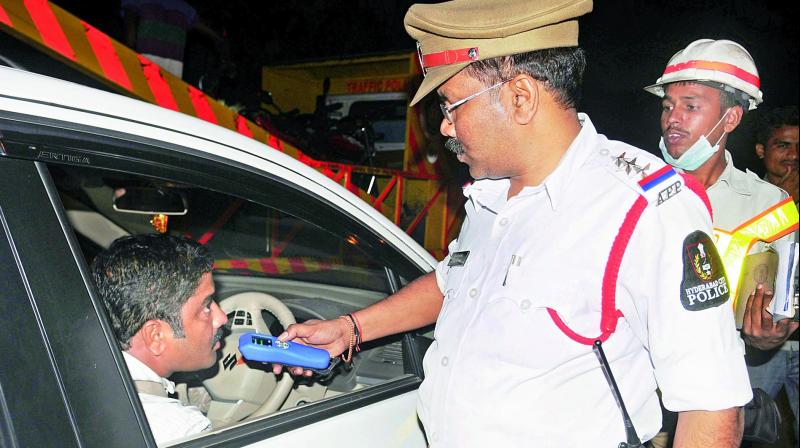On a run: WhatsApp groups created to evade traffic police in Hyderabad
Drunken drivers are using WhatsApp groups to evade check posts but the traffic police are ahead in the game too.

Motorists in Hyderabad are taking technology to a new level. In order to refrain from being caught during drunken driving checks, information about checkposts are leaked on specifically created WhatsApp groups. While the timely information is saving drunkards from being fined, the members of such groups seem to be oblivious to the seriousness of the issue.
“We are all responsible drinkers. Even though we drink, we keep it to our limits when we have to drive back. If one of the members goes overboard with the information available in the group and meets with an accident, who will be responsible? All the members. They are adults and responsible for their own deeds. The group is only created to help people from mindless checking,” says Jaypal, the admin of a closed group.
“We had created the group almost six months ago to safeguard ourselves from the mindless cop scrutiny when we had only few drinks. From then, it got expanded to five groups as there is a limit of members that can be added into one single group,” says Ravi, admin of another such group.
Despite all the efforts, there are almost 11,000 people who have been caught for drunken driving this year till October. They are mostly youngsters under 30 years. “After the drunken driving case, where a small kid Ramya died, we have taken up the matter more stringently and started doing daytime checks,” says Shaik Masoom Basha, Banjara Hills ACP (Traffic).
Mostly, IT professionals form a big chunk of these groups. “There are four or five groups. It does help to give the cops a slip sometimes. The group is active from 8 pm to 2 am,” says Vinay, a member.
One step ahead
The traffic police too have upped their game to counter the motorists. “We are aware of such WhatsApp groups. We have been shifting the check-points randomly. We have successfully placed few informers in the groups too. They inform us about any discussion going on about any particular check post and how many people are bypassing the route to some other. So, that we can swiftly change our mode of action,” says Basha.

